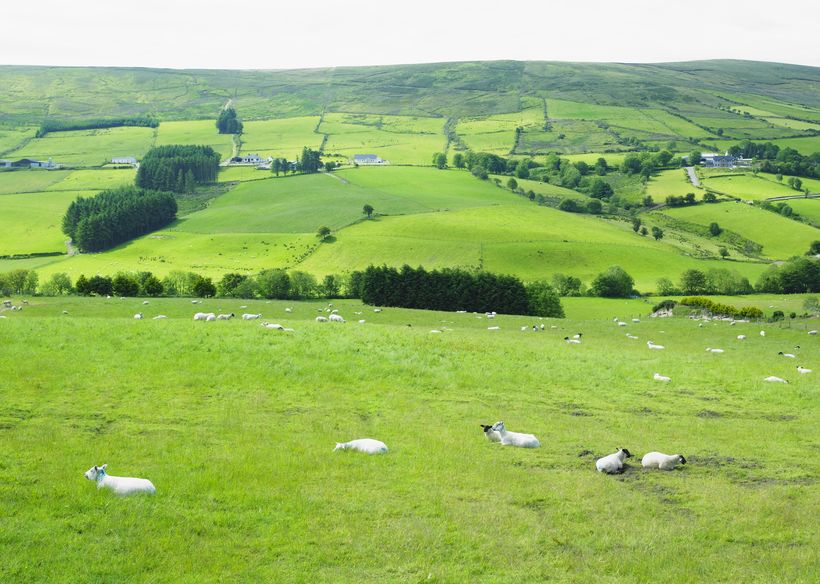
Northern Ireland farmers are being warned that the peak risk period for Nematodirus worm infection in young lambs has arrived.
The Agri-Food and Biosciences Institute (AFBI) has issued a 'high risk' warning to sheep farmers in the region.
Nematodirus infection results from the ingestion of large numbers of infective worm larvae present on contaminated pasture.
Lambs grazing the same pasture in the previous year act as the source of this contamination.
For Nematodirus eggs to hatch they must experience a period of cold weather followed by warmer conditions.
These conditions are usually achieved during the winter and spring of each year.
The AFBI said: "Nematodirus eggs passed out by lambs in 2020 will generally have remained unhatched on the ground over the winter season.
"Given suitable conditions of moisture and temperature, eggs will undergo mass hatching in the spring of 2021, resulting in a high risk of infection for lambs."
Using a forecasting system based on climate data, staff at the institute have predicted that hatching of Nematodirus eggs has commenced.
Current meteorological readings also indicate that peak hatching took place during first and second week of April 2021.
Nematodirus normally only affects lambs between 6 and 12 weeks of age and clinical signs usually appear two weeks after ingestion of large numbers of larvae.
Affected lambs develop profuse scour and can die rapidly. Although rare, Nematodirus infection can also occasionally cause problems in young calves.
Therefore, the AFBI said farmers should be on the alert for signs of scour in lambs from mid April into May.
"Farmers should be aware that Nematodirus infection can be confused with coccidiosis, another disease which causes severe scour in young lambs," it said.
"As the treatments for Nematodirus infection and coccidiosis are different, accurate diagnosis and treatment recommendation, through your veterinary surgeon, are essential."
